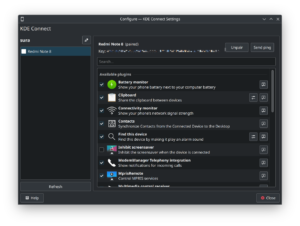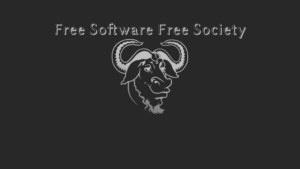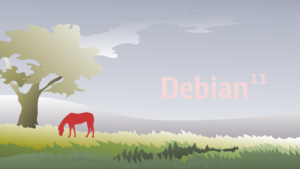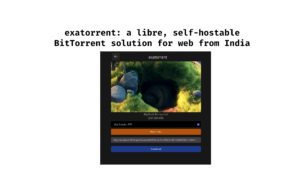OpenWRT is a firmware created based on a Linux distribution used in devices such as routers.
Support was limited to the Linksys WRT54G model, but since its rapid expansion, support for other manufacturers and devices has been included, including the Netgear, D-Link, ASUS, and a few others. The most popular router is still the Linksys WRT54G and the ASUS WL500G. OpenWRT primarily uses a command line interface, but it also has an ever-improving web interface. Technical support is provided as in most Free Software projects, through forums and its IRC channel.
License
OpenWRT is developed under the GPL license, which forced all those manufacturers who modified and improved the code, to release it and contribute more and more to the project in general. Little by little the software has grown and there are implemented features that many other manufacturers of commercial devices for the non-professional sector do not have, such as QoS, VPN and other features that give OpenWRT a really powerful and versatile device, suitable for using the hardware where OpenWRT runs is not only used in devices such as routers, but also as file servers, P2P nodes, webcam servers, firewalls or VPN gateways.
Brief history
The OpenWrt project started in January 2004. The first versions of the OpenWrt firmware were based on the Linksys GPL source code for the WRT54G router and the buildroot developed by the uClibc project. That version was called by the name OpenWrt “stable version” and was widely used.
The following year, new developers began to join the project and team, after months of closed-door programming, the team of developers decided to publish the first “experimental” version of OpenWRT. The experimental versions of OpenWRT use a highly modified build system, based on buildroot2 from the uClibc project, which has been a very important basis for this software solution as the basis for its development.
Being an operating system that works as a firmware and developed based on the official GNU / Linux kernel sources and only adds patches related to the target SoCs and drivers for the network interfaces. The team of programmers tries to re-implement most of the proprietary code inside the tar packages (tarballs) supplied by the manufacturers with free and open source, for this there are several free tools to write new formware images to flash memory (mdt ), to configure the wireless network chip (wlcompat / wificonf), and to program the ethernet switch with VLAN support through the proc pseudo-file system.
The code name of the first released version of OpenWrt is “White Russian”. The development of the White Russian version ended with the release of OpenWrt 0.9. Subsequent releases removed the prefix ‘0.’ from the version numbering scheme, and included the release year of the particular version. Consequently, OpenWrt 7 and 8, both from the “Kamikaze” stream, were released between 2007-2008. In 2010 OpenWrt 10 was ready in a new version line codenamed “Backfire”. It was later followed by version 15, “Chaos Calmer”, released on March 16, 2016.
In 2018, the OpenWRT project merged with the LEDE project, with similar characteristics, then starting to work on a joint version that was launched in stable form on July 31, 2018 under the name “OpenWRT 18.06.0”.
Stable Releases Released
- 18.06.2 January 2019
- 18.06.1 August 2018
- 18.6.0 July 2018
- Chaos Calmer 15.05.1 March 16, 2016
- Barrier Breaker 14.07 October 2014 Barrier Breaker
- Attitude Adjustment 12.09 April 2013 Attitude Adjustment
- Backfire 10.03.1 December 2011 Backfire
- Backfire 10.03 April 2010 Backfire
- Kamikaze 8.09.2 January 2010 Kamikaze
- Kamikaze 8.09.1 June 2009 Kamikaze
- Kamikaze 8.09 September 2008 Kamikaze
- Kamikaze 7.09 September 2007 Kamikaze
- Kamikaze 7.07 July 2007 Kamikaze
- Kamikaze 7.06 June 2007 Kamikaze
- White Russian 0.9 January 2007 White Russian
Documentation
This project is characterized by having a very detailed technical documentation where users and developers can know all the available functionalities of OpenWRT and in any case they want to collaborate in the project they will be able to read and know key points to be a collaborating developer of the project, the following is provided url of the official documentation of this project or software solution:
https://openwrt.org/docs/start
Get to know the project and the team
Well, perhaps some people want to know some specific aspects of the project as a work team and which people are part of it and other aspects such as media that usually use the vision of the project and some other topics that are detailed in the following URL of its official website :
https://openwrt.org/about
Project infrastructure
Like any free software project, this one has a deployed infrastructure used by the work team and that they have taken the time to explain it in the following url of their official site:
https://openwrt.org/infrastructure
Contributions and donations
The main contribution that can be made in this type of project is to join the team and help with tasks such as translations, documentation, development or support in the organization of work, but another way to support this project and that is key to practically All free and open source open source software projects is the financing or donations to cover operational expenses of the project, test hardware, server hosting, domain, among other varied expenses within the project and that as enthusiastic users we can collaborate with a donation to the project and following the instructions and means available to make donations to the project at the following URL of its official website:
https://openwrt.org/donate









